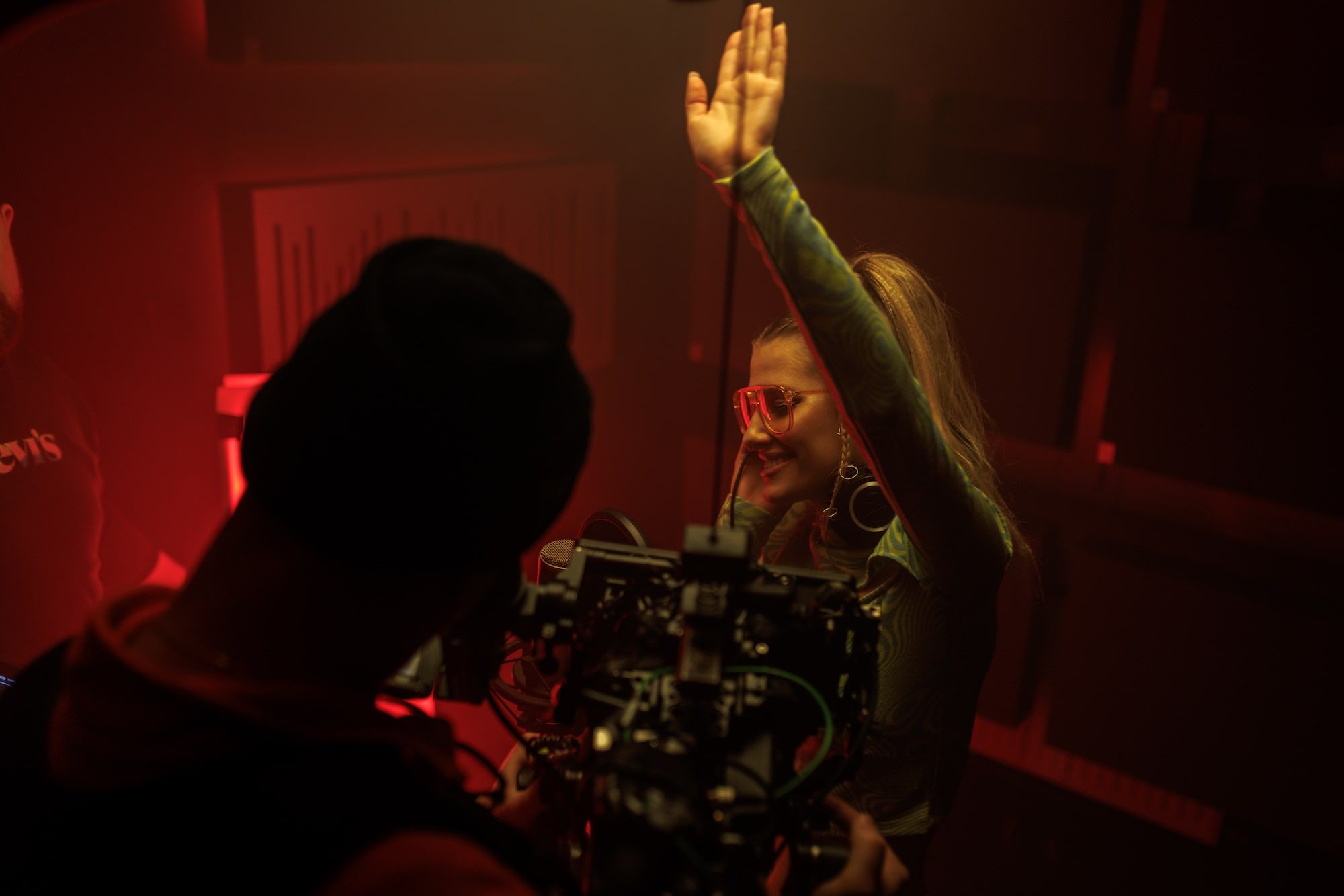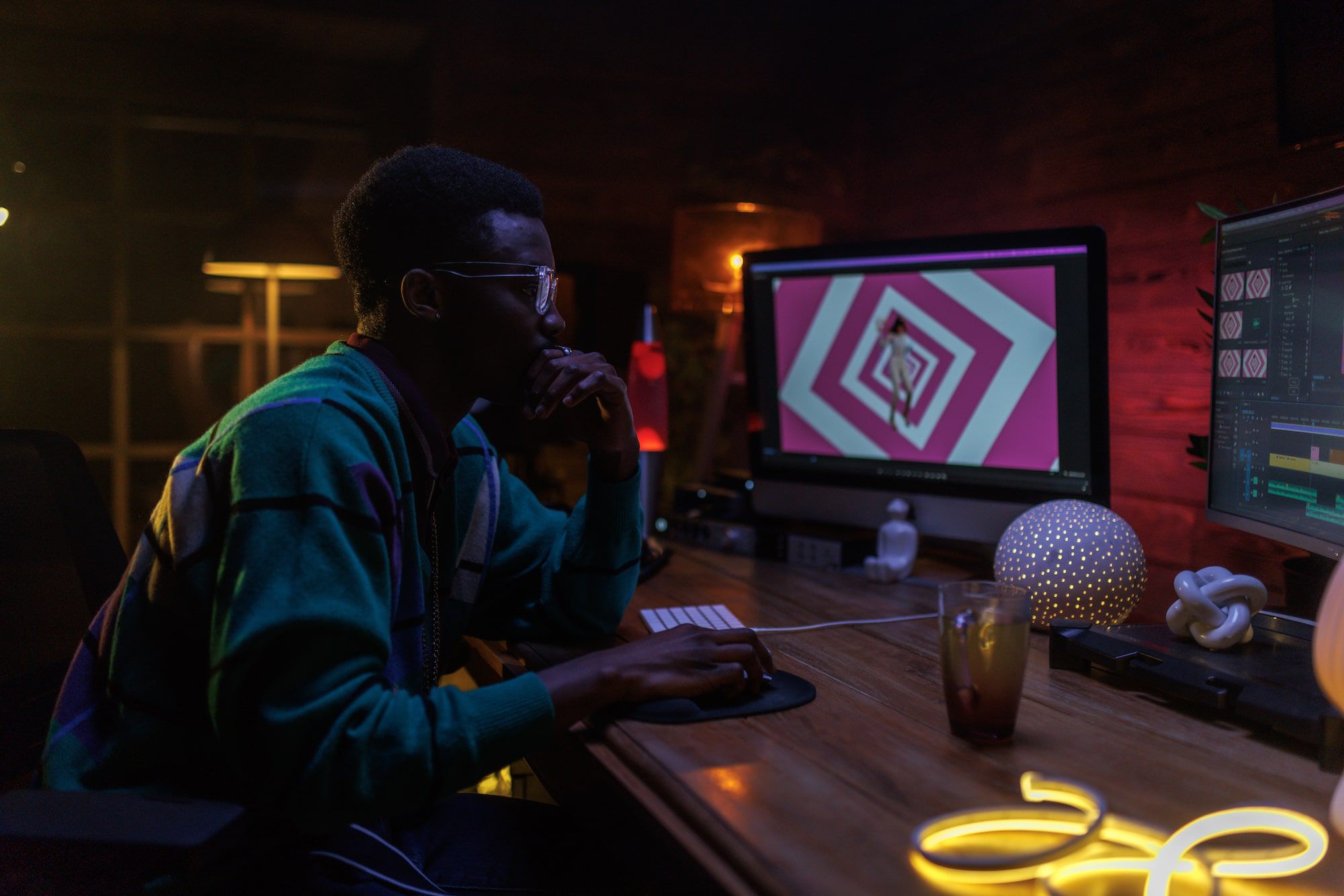
The Evolution of the Music Industry
The new model to unchain your potential!
You’ve got the lyrics nailed, the beat has dropped, and your music is out in the world. It’s easy to think that’s the hard work done. In reality, it’s only the beginning. But what comes next? You need a plan to get noticed by major players and an understanding of alternative routes to success!
The music industry has come a long way since the days of music albums and CDs and it is now changing at a rapid pace. If you’re an artist, it can be tough to keep up! But don’t worry, we’re here to help unchain your potential and get you ahead of the curve.
With the advent of digital music, thanks to the rise of streaming services, artists can bypass traditional record labels and connect with their audience directly. As a result, the music industry is increasingly becoming artist-centric, and this shift offers a unique opportunity for independent artists to thrive.
So what does this all mean for you?
You can now take control of your own career and release your music directly to the world.Of course, there are still some things you need to know about copyright and the role of intermediaries, but overall the world is yours for the taking.
These days, the music industry is full of jargon that can be confusing, even for experienced artists. Copyright law is no exception. There are many common pitfalls made by musicians, but by understanding music copyrights, you can set yourself up for success.
As an artist, you want your music to be played as much as possible in order to get exposure and promote your work. Each time your music is broadcast, you need “someone” or “something” that is able to manage any royalties due to you, a so-called intermediary. Until now it has been so, but will it still be so?
It has long been standard practice for artists to rely on intermediaries to manage royalties on their behalf. However, with the rise of new technologies, this system is beginning to change, making intermediaries progressively less necessary. Keep reading this article to know why!
Intermediaries
In the music industry, an intermediary is a person/entity which operates between artists and the music market.
Artists often rely on these entities to manage their works, collect royalties, and promote their songs. The three most relevant intermediaries in the music industry are: Collecting Societies, Publishers and Record Labels.

1. Collecting Societies
These Societies are also called PRO (Performing Rights Organisations). PROs represent artists who authorised them to issue licences to users, collect royalties and distribute them. Be aware that especially in Europe, PROs require a mandate to manage your entire repertoire and that you must register all of your works. Moreover, this mandate is exclusive, i.e. if you register a song with a PRO you cannot manage it independently, nor be managed by other parties. However, the artist member of a PRO can ask the PRO to collect royalties only for certain uses or for certain territories.
PROs do not always collect all the royalties. Imagine a song divided into two parts: the composition (i.e. the music and lyrics) and the recording (i.e. the recording of those music and lyrics in a physical or digital product). A specific right belongs to each of them. But who are the respective owners?
The rightsholders of the composition are the composers (the one who writes the lyrics and/or the music) and the publisher to whom the composer might have granted the rights. The rightsholders of the recording are the producers (i.e. the one who actually makes the recording by providing the necessary means) and/or the performer who performs in the recording session.
PROs collect the royalties generated by the exploitation of the composition, so they are intermediaries between authors and music users. NROs (Neighbouring Rights Organisations) collect the royalties generated by the exploitation of the recording to then distribute them to producers and performing artists. These rights are in a neighbourhood relationship with the authors’ rights, that’s why they are called neighbouring rights.
2. Publishers
When artists and composers hear the expression “music publishing” for the first time, there’s usually a fair amount of confusion. But don’t worry, we got you covered!
Music publishing, in short, is really all about songwriters and copyrights and as a songwriter you should keep in mind that each song you write and record exists mainly in the form of the composition (underlying melody, lyrics, and music).
The role of a music publisher is to promote the music that artists grant them by a publishing agreement.
Back in the day, publishing took its origins from printed musical scores, with the main role of selling printed copies of works to enable their performance.
Nowadays, Publishers take care of music marketing and promotion through all ways of exploitation. To do that, Publishers ask artists to grant them all the rights to the composition for the whole life of the copyright (normally until 70 years after the death of the composer) and the bond is exclusive. Given that, the publisher itself registers each song with the collecting societies, dividing any profits between itself and the artist.
3. Record Labels
Record Labels are companies that market recorded music. They engage in a wide range of functions in the music industry, including new artist recruitment and development. They ask artists to exclusively grant all their rights on the sound recording to the label, in return for taking over the organisation of the recording session and promotion, becoming the effective rights owner of the sound recording, the so-called “master rights”.
In the past, the music industry was largely controlled by record labels. Artists were signed to these labels and then they would produce, promote and distribute their music. However, this model has been increasingly challenged in recent years as new technologies have emerged. Nowadays, there are a whole range of options available to artists when it comes to releasing and promoting their music.
Alternative routes
With the rise of digitalisation, a profound need to simplify the rights administration and the disruption of online music distribution, the music ecosystem led by the artist community developed new, innovative ways to market and monetise the music digitally, enabling artists to stay independent and at the same time receiving a fair remuneration, even without intermediaries. In this case we can say that you can have the pie and eat it too! This is possible thanks to direct-licensed music services.
What is direct licensing?
In the music industry, direct licensing is when an artist fully owns the rights to their works. This means that the artist does not have to assign those rights to a third party, such as a publisher or label. The artist can freely manage their repertoire by subscribing to any music service they consider most convenient and profitable. Additionally, the artist is not bound to a PRO, and can retain a higher percentage of royalties. For these reasons, direct licensing is becoming increasingly popular among artists, especially tech-savvy ones who are looking for more control over their music careers.
What services are we talking about?
With a direct licence you as an artist can combine the following music services:
• Background music for businesses – you can pitch your music to be played in commercial venues;
• Sync & Licensing – your music can be pitched for a movie, adverts, videos and social media content;
• Distribution – to distribute your music to digital stores like Spotify, iTunes without any share of your revenue being taken by a PRO or publisher
All the services above guarantee a direct earning process for artists and a fully-licensed pack for clients and users.

In this multi-sided context, do artists still need to rely on collecting rights societies, publishers and labels? Given that technology has drastically decreased their production costs and that artists can place their music directly online?
If you’re an independent artist, the music industry can be a tough nut to crack. Between copyright law and the complex licensing agreements, it’s easy to get lost in the shuffle – and that’s before you even try to get your music heard. This has led to new alternatives that can help independent artists to vary their incomes while sidestepping intermediaries.
An artist-centric model
The music industry is notoriously difficult to navigate, and artists often have to go through a number of intermediaries in order to get their music out there. This can often mean that they see a very small percentage of the revenue from their music, and it can be hard to reach new listeners. Rehegoo is a music tech company that is looking to change all that. We have developed a platform that allows artists to bypass traditional intermediaries and deal directly with music services. This means that they can retain a higher percentage of their revenue, and at the same time expose their music to a wider range of listeners. We believe that artists should be paid fairly for their work, and our platform is helping to make that happen.
Wrapping up
With so many changes taking place, it can be difficult to keep up, but we believe that the new artist-centric model will unchain your potential! Thanks to technology, independent artists now have the tools they need to succeed on their own terms. So go out there and make some noise! The world is waiting to hear what you have to say.
